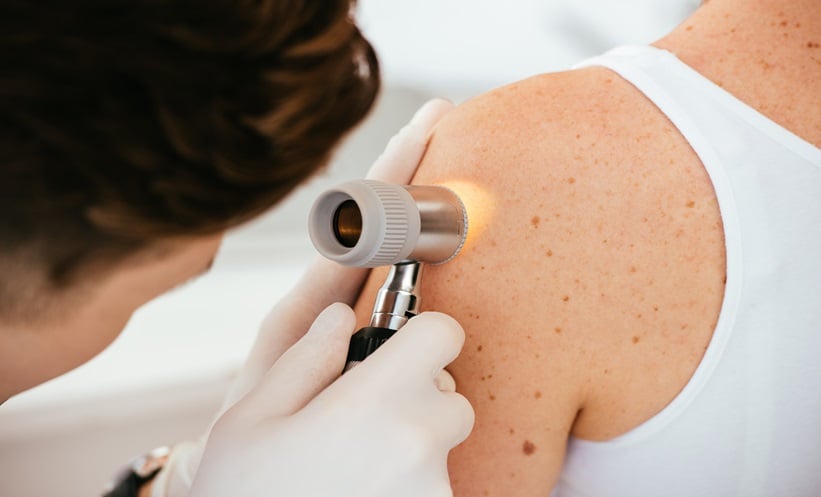DERMATOLOGISTS, especially those with more experience, have significantly higher accuracy in diagnosing skin cancer compared to primary care physicians (PCPs), with enhanced diagnostic accuracy when using dermoscopy rather than clinical examination alone, according to a recent systematic review and meta-analysis.
Skin cancer is among the most common cancers globally, with early and accurate detection crucial for reducing morbidity and mortality. This study reviewed 100 studies assessing the accuracy of skin cancer diagnoses across physician specialties and experience levels, examining two main lesion types: melanocytic (for example melanoma) and keratinocytic (for example basal cell carcinoma) cancers. Researchers also compared diagnostic methods, evaluating results from in-person clinical examinations and clinical images against dermoscopy and dermoscopic images, with results stratified by physician type (experienced dermatologists, inexperienced dermatologists, and PCPs).
Results showed that experienced dermatologists using clinical examination and images had a sensitivity and specificity of 79% and 89.1% for diagnosing keratinocytic carcinomas. This improved to 83.7% and 87.4% when using dermoscopy, with PCPs showing lower accuracy at 81.4% sensitivity and 80.1% specificity. For melanoma diagnosis, experienced dermatologists using clinical examination achieved a sensitivity of 76.9% and specificity of 89.1%, while PCPs had markedly lower rates at 37.5% and 84.6%, respectively. Dermoscopy improved these results further for dermatologists, with experienced dermatologists achieving a 5.7-fold higher odds of melanoma accuracy and 13.3-fold higher odds than PCPs when using dermoscopic images.
These findings highlight the effectiveness of dermoscopy, particularly in the hands of experienced dermatologists, for improving diagnostic accuracy. Dermoscopy could thus be a vital tool in clinical practice for identifying skin cancer earlier and more reliably. The study emphasises the importance of practitioner training and suggests that these benchmarks of diagnostic accuracy could serve as reference points for evaluating new technologies and improving clinical trial designs.
Reference
Chen JY et al. Skin cancer diagnosis by lesion, physician, and examination type: A systematic review and meta-analysis. 2024. DOI: 10.1001/jamadermatol.2024.4382.







